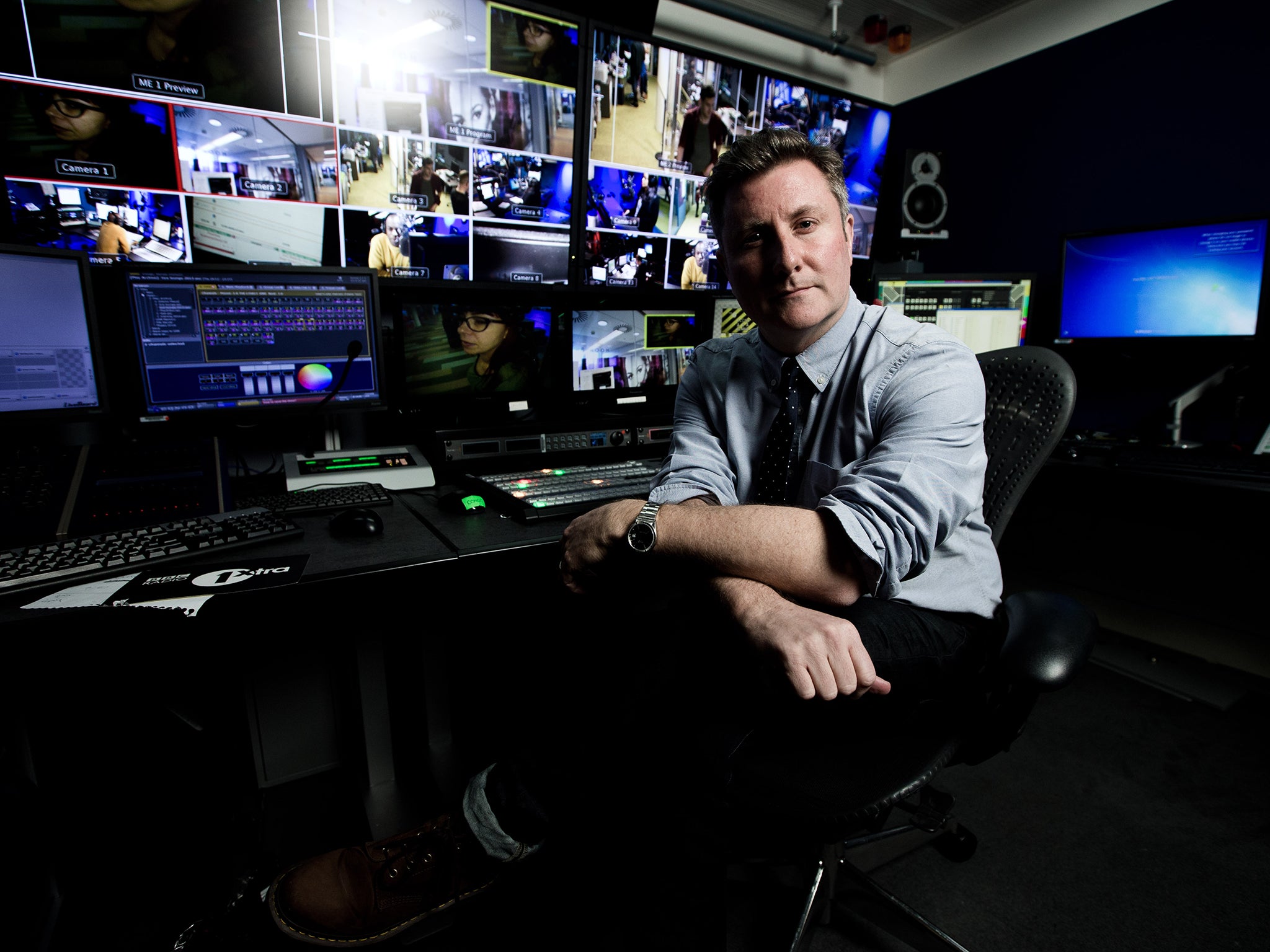Apple Music: New worldwide radio station is welcome, says BBC Radio 1 chief Ben Cooper
US giant poached Zane Lowe but BBC station chief believes invader will be thwarted

When Apple announced that its new music-streaming offering would include a “worldwide live radio station broadcasting 24 hours a day”, Ben Cooper, the controller of BBC Radio 1, was initially unimpressed.
He says: “I did think, ‘Well Radio 1 has been broadcasting 24/7 since 1991. That’s not something new. We represent our music globally with Pete Tong playing out of LA and programming from Ibiza, Jamaica and South Africa this year. What else have you got?’”
What the technology giant did have was Zane Lowe, the DJ famed for breaking new acts on his Radio 1 show, who was poached as a headline attraction for Beats 1, a station “dedicated entirely to music and music culture, which will broadcast live to over 100 countries”.
Based in Los Angeles, Lowe will front a two-hour daily show which airs in the 5-7pm UK drive-time slot. Described by Jimmy Iovine, the Apple music guru, as “the most adventurous guy we could find – somebody who had the guts to play new music”, Lowe’s task will be to make stars out of cult alternative artists such as The War On Drugs who do not fit on mainstream radio. He is joined by two other specialist DJs, Julie Adenuga, a relative unknown who plays grime music on Rinse FM in London, and Ebro Darden, a hip-hop DJ based in New York.
Clearly Beats 1, backed by Apple’s huge marketing muscle, presents a challenge to Radio 1, which last week fended off figures showing Nick Grimshaw’s breakfast show has lost a million listeners since its 2012 launch, including 210,000 in the station’s target 15-29 age group.
Radio 1’s 15-to 29-year-old audience fell 6.9 per cent over the past year, to 4.3 million. But Cooper, who recognises traditional radio is of fleeting interest to younger audiences, is focused on the million views a day being received by Radio 1’s YouTube channel and the “multi-platform brand” opportunities offered by smartphones, iPad and IPTV.
If Beats 1 inflicts mortal damage on Radio 1 it will be collateral. The station, set to launch on June 30, has Pandora, the US free automated streaming radio service, in its sights, as well as Spotify, the market leader in streaming with 20 million paid subscribers.
Beats 1 –with Beats 2 and 3 to follow, targeting niche tastes – exists to drive the 800 million customers who have previously lodged their debit card details with Apple, to its “revolutionary” new streaming service, which echoes Spotify’s established offering, down to its subscription fee of $9.99 a month.
Although Apple returned to Radio 1 to poach a number of producers, Cooper believes the BBC and the world’s largest technology company can work as partners.
“If you look at their 24/7 announcement, they only have three presenters so far,” Cooper says. “They have a lot of airtime to fill. And who produces the best new music content in the world? Radio 1. So I’m waiting for Zane Lowe to call. Let’s see what we can do together. Radio 1 already has a great track record of working with technology partners. We work with YouTube, Facebook and across Twitter accounts.”
Apple has promised a line-up of star musicians presenting their curated playlists across a range of stations ranging from “indie rock to classical and folk to funk”.
BBC Radio has expertise in turning musicians such as Jarvis Cocker and Iggy Pop into award-winning presenters, which Apple could tap into. “Just because someone is a great guitarist or singer, it doesn’t mean they are great radio presenters.” Cooper welcomes Apple’s intervention in the radio ecology, saying: “Beats isn’t the death star hovering over us from above, as some people claim. Competition keeps us on our toes and a rising tide lifts all boats.”
But he adds: “My question for Beats is, can it break a British act worldwide? At Radio 1 we’ve helped do that through BBC Introducing. That was the platform for Florence +The Machine (No1 in the Billboard US chart this week), Jake Bugg, Royal Blood and now SOAK. Can Beats do that?
“Radio 1’s mission is to reflect youth culture and music in UK society. How do you develop a sense of community from a station covering 100 territories around the world?”
Iovine, a leading record producer-turned-industry executive, said Beats 1 was inspired by his disillusionment with “manufactured, genre-based, research-driven” music radio, which blocks innovative sounds breaking through.
America has never had a “multi-genre” station such as Radio 1, which has daytime chart hits followed by specialist passions later in the day. Apple is free to steal Radio 1’s best ideas and talent without the restrictions faced by Cooper, who must answer to a BBC Trust which tasked him with drawing in a younger audience.
“The US has genre-specific stations and they’re very boring,” he says. “What makes great radio comes from the serendipity of hearing a new song, that unpredictability.”
Subscribe to Independent Premium to bookmark this article
Want to bookmark your favourite articles and stories to read or reference later? Start your Independent Premium subscription today.

Join our commenting forum
Join thought-provoking conversations, follow other Independent readers and see their replies